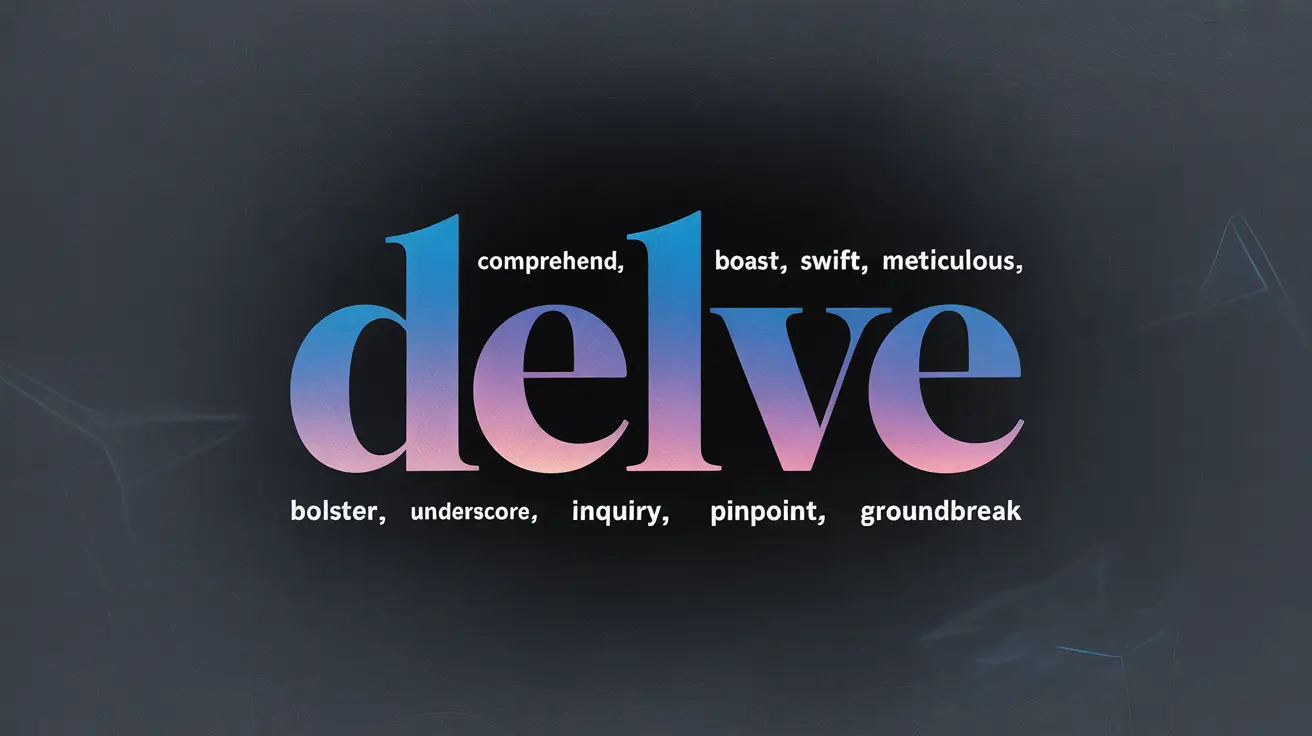If you’ve caught yourself saying you want to “delve” into something lately, you might have ChatGPT to thank. Or blame. A new study from researchers at the Max Planck Institute for Human Development has found that some of the chatbot’s favorite words are quietly working their way into how we talk — even in spontaneous conversations.
The Rise of the “GPT Words”
The research team analyzed a staggering 740,000 hours of spoken English — that’s the equivalent of watching movies back-to-back for more than 84 years. They pulled transcripts from over 360,000 YouTube academic talks and more than 770,000 podcast episodes. The goal: to see if the release of ChatGPT in late 2022 had any measurable effect on the words people use in speech.
They discovered a special group of terms they call “GPT words.” These are words that ChatGPT strongly prefers to use compared to humans. Think of them as the chatbot’s linguistic signature. The top culprits include “delve,” “comprehend,” “boast,” “swift,” and “meticulous,” along with others like “bolster,” “underscore,” “inquiry,” “pinpoint,” and “groundbreak.”
Here’s the twist: after ChatGPT’s release on November 30, 2022, the use of these words in human speech spiked sharply. In some cases, their usage is now growing 25% to 50% per year.
From Academia to Everyday Chatter
The most obvious place for this influence to show up first was academia. Academic speakers are more likely to prepare scripts or notes — and since ChatGPT is a handy writing assistant, it makes sense that its style could bleed into conference talks, lectures, and panel discussions. Sure enough, “delve” saw a dramatic post-ChatGPT jump in academic YouTube videos.
But the influence didn’t stop there. The researchers wanted to see if this effect was limited to formal, scripted speech or if it also showed up in casual, unscripted conversations. That’s where podcasts came in. They analyzed episodes in five categories: Science & Technology, Business, Education, Religion & Spirituality, and Sports.
In podcasts — which are often free-flowing and unscripted — the same pattern emerged. “Delve” surged in science, business, and education shows, though not in religion or sports. Words like “swift” and “meticulous” also gained ground across multiple categories.
This suggests the phenomenon isn’t just people reading ChatGPT-generated text out loud. These words seem to be seeping into people’s active vocabulary and becoming part of natural conversation.
The Feedback Loop Between Humans and Machines
Here’s where it gets a little mind-bending. ChatGPT was trained on massive amounts of human language — books, articles, websites, and more. In the process, it developed its own style, complete with favorite words. Now, those words are being picked up by humans, spoken in conversations, and added back into the world’s collective language data. Future AI models will then be trained on this slightly more ChatGPT-flavored language.
The researchers call this a “closed cultural feedback loop.” It’s like a boomerang effect for words — humans taught them to the machine, the machine gives them back in a slightly different mix, and humans adopt them again. Over time, this could shape not just language, but also the way we think, since certain words carry subtle ways of framing ideas.
That’s not necessarily a bad thing — language has always evolved. But the scale here is unprecedented. ChatGPT had over 100 million users in its first two months. That’s a lot of potential “delving” in a very short period of time.
Why These Words?
Why would ChatGPT favor “delve” over “explore,” or “swift” over “fast”? The answer isn’t simple. It could be a mix of the model’s training data, its fine-tuning process, and its alignment with certain social norms — like preferring more formal or polished vocabulary. These quirks give ChatGPT a consistent voice, which then leaves fingerprints in its output.
Over time, exposure to this style — especially in influential settings like education or business — may make people more likely to use these words themselves. Sometimes it might be conscious imitation; other times it’s just that the word pops into your mind first because you’ve seen or heard it recently.
Should We Be Concerned?
One concern the researchers raise is linguistic homogenization — the idea that if AI systems keep promoting the same small set of words and styles, our language might lose some of its richness. Diversity in language reflects diversity in thought and culture. If certain expressions get crowded out, that could subtly narrow the ways we express ourselves.
On the flip side, AI-influenced language could also help standardize communication, making it clearer and more accessible, especially for non-native speakers. It all depends on how the balance plays out over time.
For now, the main takeaway is that ChatGPT isn’t just a passive tool. It’s starting to participate in the living, breathing evolution of our language — and we’re all part of the experiment.
So, What’s Next?
The team behind the study says we’re only seeing the early stages. If this feedback loop continues, future language models might end up amplifying their own stylistic quirks, leading to even stronger influence on human speech. That could be fascinating, beneficial, or a little creepy — depending on how you look at it.
In the meantime, the next time you hear someone say they’d like to “delve” into a topic, you can smile knowingly. They might not have realized it, but they’re part of a new chapter in the long history of how technology shapes the way we talk. And if you catch yourself saying it too? Well… welcome to the club.

